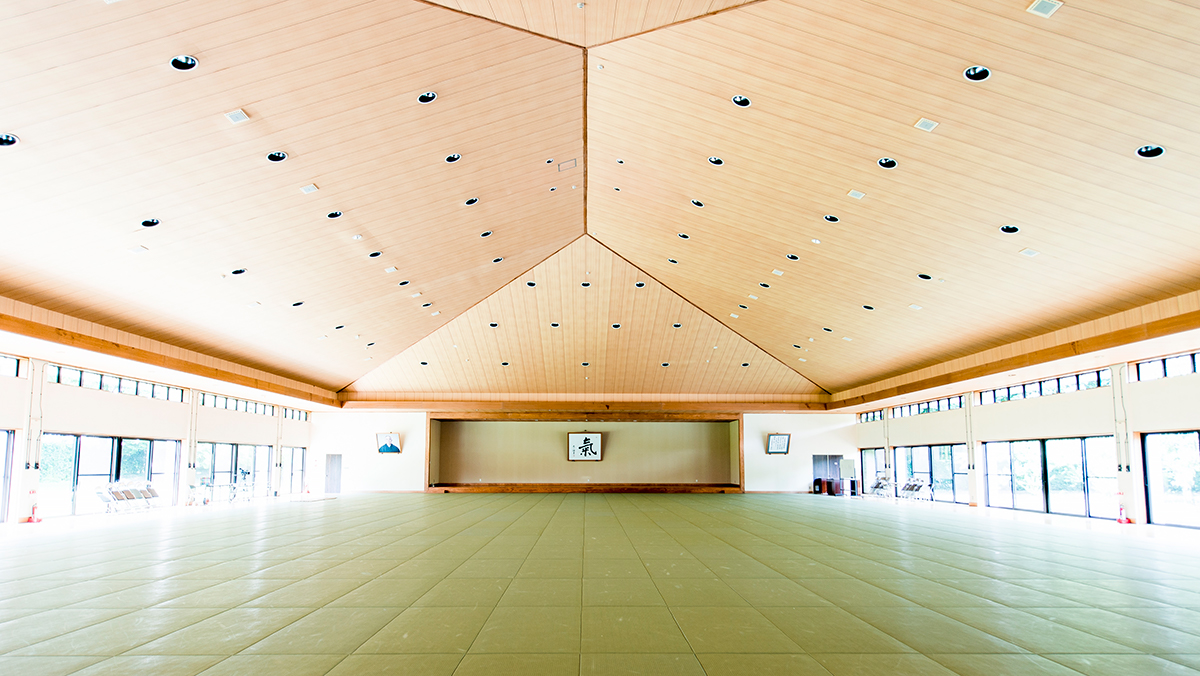A Short Instruction:
The purpose of this article is to practice and validate the Ki principles (Mind moves body) which are the foundation of Ki-Aikido in your daily life. Therefore, it has no meaning if you just read it without practicing it.
The fundamental method of mastering anything is practice. However, not just practice, but it is also important to validate how one has changed as a result of the practice.
It is easy to lose what you have learned without practice. On the other hand, you will never lose what you have learned through practice and validation. Therefore, please read, practice, and validate the contents of my article at least a month.
"Put yourself in the place of your opponent"
There is a series of principles which is fundamental to Ki-Aikido practice. This series is called “The five principles of Aikido with mind and body unified”
Five principles of Aikido with mind and body unified:
1. Ki is extending
2. Know your opponent’s mind
3. Respect your opponent’s Ki
4. Put yourself in the place of your opponent
5. Perform with confidence
Our Ki is extending, therefore we can know another’s mind. We know another’s mind, therefore we can respect another’s Ki. We respect another’s Ki, therefore we can put ourselves in the place of another. After that, we just perform with confidence.
If we practice this correctly, we can lead others.
In the dojo, we practice “Put yourself in the place of your opponent”. However, if you practice it only in your dojo, you cannot master it.
This is because we can practice in the dojo only a few hours each day. If you are busy businessman, you might be able to practice only a few hours a week or even a month. It is natural that we are away from the dojo much longer than we are practicing in the dojo. This means we come under much greater influence from the outside world.
To master Ki principles most effectively, we must practice in the dojo, of course. But we must also practice the Ki principles in our daily life. It is no use just to think “Put yourself in the place of your opponent.” It is important to actually practice “Put yourself in the place of your opponent”.
For example, when I hand money to a sales clerk at a cash register when I am shopping, I can hand over the money in such a way that the sales clerk finds it easy to count it up and can easily gather up the coins. When I observe others carefully, I notice that some people hand money to a sales clerk in a disorderly manner and the sales clerk has a hard time counting it.
If you do something to make it easier for others, this means to “Put yourself in the place of your opponent”.
In another example, at a casual restaurant, when a waiter removes dishes from the table, we can arrange the used dishes in such a way as to make it easier for the waiter to pick them up. (This might not be a good practice at an expensive restaurant.) When I observe others carefully, I notice that some people do not help a waiter and waiter has a hard time removing the dishes from the table. This is another case in which you can ““Put yourself in the place of your opponent”.
When I teach at the dojo, I can put myself in the place of the students, such as using a high enough volume and clear enough quality of voice, or when I use a writing board, making the letters large enough for easy reading, etc. When I listen to lectures by others, sometimes it is difficult to hear clearly. In this case, it is also important to “Put yourself in the place of your opponent”.
When I review my daily life, I always try to do “Put myself in the place of my opponent”, but sometimes I am lacking in consideration. I am not perfect, but I take my daily life as practice. Therefore I find my deficiencies everyday, and then I have the opportunity to fix my deficiencies.
This is something that I really appreciate about this practice.
If you do practice “Put yourself in the place of your opponent” in your daily life, you can do it in your Aikido techniques. People who do not practice it in daily life, cannot master anything. Please practice it in your daily life.
What state of mind do you have when you “Put yourself in the place of your opponent”? Please discover this by doing this month’s practice and validation.
Below is this month’s practice and validation:
[Point of practice]
To help others in all communication in your daily life.
Use your words and actions to make things easier for others.
[Point of validation]
How others react to your help.
What state of mind are you in when you “Put yourself in the place of your opponent”?

